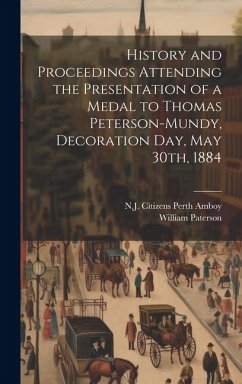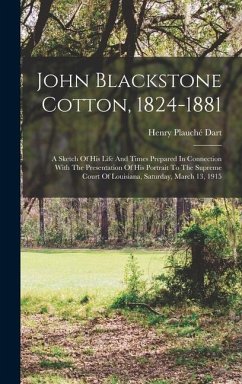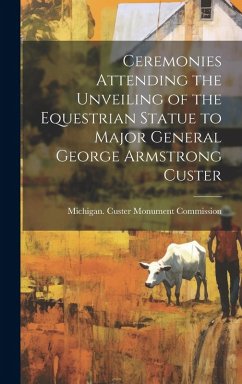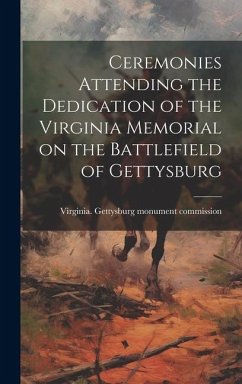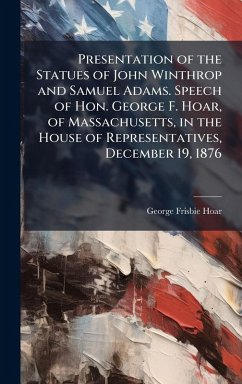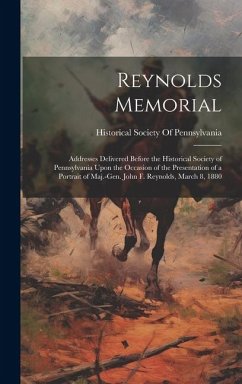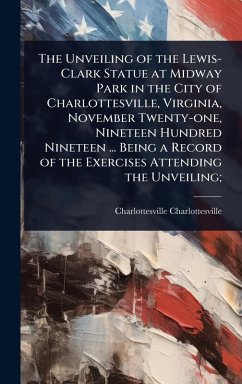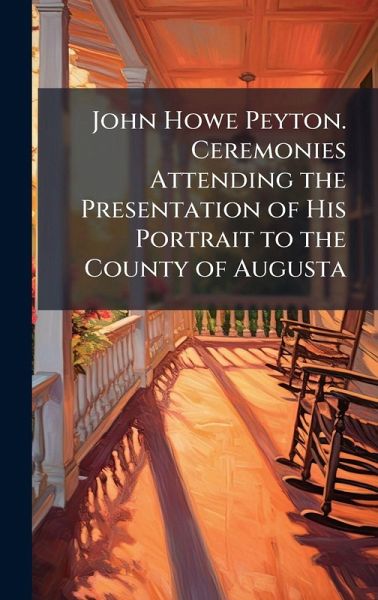
John Howe Peyton. Ceremonies Attending the Presentation of His Portrait to the County of Augusta
Versandkostenfrei!
Versandfertig in über 4 Wochen
27,99 €
inkl. MwSt.

PAYBACK Punkte
14 °P sammeln!
This volume documents the ceremonies surrounding the presentation of a portrait of John Howe Peyton to the County of Augusta, Virginia. A prominent figure in the region, Peyton's contributions and legacy are celebrated through speeches, letters, and detailed accounts of the event. The book offers insights into the social and political landscape of 19th-century Virginia, providing a glimpse into the values and customs of the time. It serves as a valuable resource for those interested in local history, biography, and the cultural traditions of the American South. The record of this event capture...
This volume documents the ceremonies surrounding the presentation of a portrait of John Howe Peyton to the County of Augusta, Virginia. A prominent figure in the region, Peyton's contributions and legacy are celebrated through speeches, letters, and detailed accounts of the event. The book offers insights into the social and political landscape of 19th-century Virginia, providing a glimpse into the values and customs of the time. It serves as a valuable resource for those interested in local history, biography, and the cultural traditions of the American South. The record of this event captures a moment in time, preserving the memory of a respected individual and the community that honored him. This work has been selected by scholars as being culturally important, and is part of the knowledge base of civilization as we know it. This work was reproduced from the original artifact, and remains as true to the original work as possible. Therefore, you will see the original copyright references, library stamps (as most of these works have been housed in our most important libraries around the world), and other notations in the work. This work is in the public domain in the United States of America, and possibly other nations. Within the United States, you may freely copy and distribute this work, as no entity (individual or corporate) has a copyright on the body of the work. As a reproduction of a historical artifact, this work may contain missing or blurred pages, poor pictures, errant marks, etc. Scholars believe, and we concur, that this work is important enough to be preserved, reproduced, and made generally available to the public. We appreciate your support of the preservation process, and thank you for being an important part of keeping this knowledge alive and relevant.



